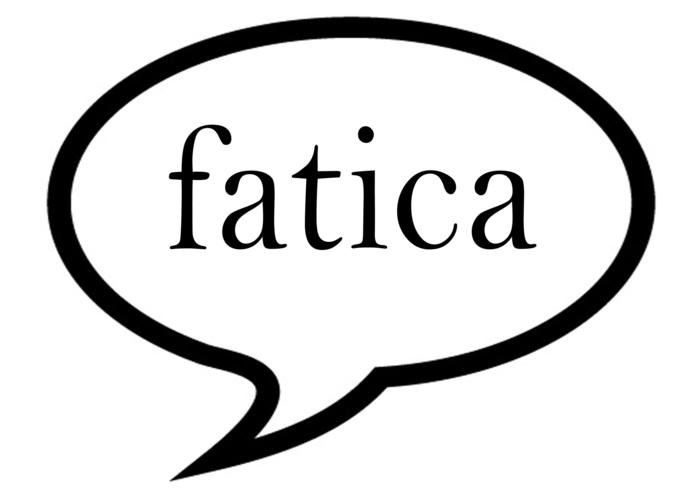Matter of centimeters, matter of fatigue. But also a matter of life or death . These are days when it seems that we all have to fight, we all have to pay attention to centimeters too, we talked about it about the droplet, the distance that is imposed on us by the droplets we emit while talking. Among the many reflections and the many words that have been generated in this period of difficulty, or even regenerated, there is the term fatigue .
Just as we happened to see about the empty expression, when we pronounce this word in general the meaning we give it or the echo that resonates is negative : I struggle, I can not stand up from fatigue, the effort to live , endure fatigue, succeed with fatigue, and then auditory and visual fatigue, not to mention useless fatigue and wasted fatigue, where if nothing else, the intrinsic reference to something that has a value appears. In all these cases, however, the word fatigue is linked to the element of effort and tiredness.
Listen to the word fatigue in the podcast version with audio inserts:
Listen to "The word of the week: fatigue (by Massimo Sebastiani)" on Spreaker.
And in fact in its most classic definition, in physiology, fatigue is the condition of functional exhaustion that occurs at the end of an exercise or work done, for example by the muscle or nervous system. This exhaustion, this extreme (another beautiful and much used word in these days, derived from the extreme by apheresis, and therefore linked to the idea of border limit, border and therefore in a certain sense also travel, path) has been admirably summarized in recent weeks, as often happens, from an image: that, in black and white, of nurse Elena , who, still with a white coat and mask, collapses exhausted, in fact, at 6 in the morning on a desk after a shift grueling job at the Cremona hospital.
Beyond, or rather on this side, the rhetoric on heroism belatedly rediscovered by doctors, nurses and health workers, that image gives us back a decisive aspect of the word fatigue: its worth, its value. It is the value of fatigue as 'food of the spirit' says Petrarch , it is the value of fatiguing and fighting against obstacles which for man represents a need just like for the mole that of digging, said philosopher Arthur Schopenhauer . A value that can be recognized in the final goal of that journey at the end of the night which we mentioned earlier: it is the concrete and anti-rhetorical translation of the famous aspera ad astra or, if you prefer, for aspera sic itur ad astra, the Latin expression given famous by Cicero and Seneca but which derives from Greek mythology, where the heroes, first of all Hercules, were brought to Olympus but only after accomplishing tiring endeavors.
It is no coincidence that in Liezi, or the book of the perfect Void , one of the three cornerstones in which the principles of the Taoist tradition are summarized, the effort is opposed to fate: the two discuss who is more decisive in influencing and shaping the events. As westerners, in the midst of the coronavirus storm, we hope that effort, together with reason, can do more than fate, whatever that word means. Especially because this effort has a value, which is also linked to the meaning and etymology of the word fatigue. Gianna Mazzini reminded her in an article in the magazine Buddhism and society , about the effort, thinking about the offer. Fatigue, Mazzini recalls, derives from fatis linked to the verb fatisco. The meaning is surprising, but not too much: to open up, to crack, to crack. So fatis is crack. For this reason, in engineering, in the field of materials technology, the fatigue point is progressive damage followed by breakage, opening.
With the utmost respect for the engineers, it took a poet, a lord of the song, who among other things spent five years in a Zen monastery, to make all this lyrically and inspired. He is Leonard Cohen and the song is Anthem, Anthem . The one that says that "there is a crack in everything, that's where the light comes in" *. And the light, Cohen said commenting on his passage, is the ability to reconcile your experience, your pain, with each day that dawns. '

